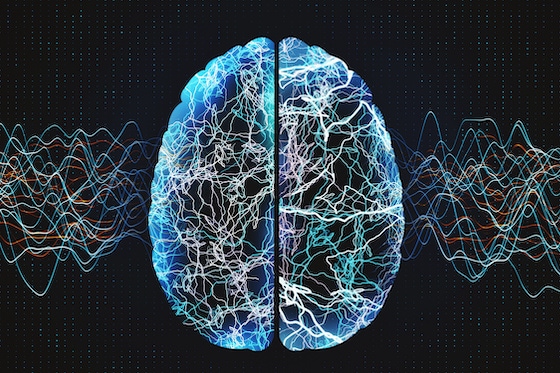How Depression Affects Memory And Cognitive Function

Depression is a serious mental health condition that can have a profound impact on your life. From changes in mood and behavior to physical symptoms, depression can affect every aspect of your life. One particularly concerning effect of depression is how it affects memory and cognitive function.
Unfortunately, it’s common for those experiencing depression to notice problems with their memory and thinking skills. In this article, we’ll discuss how depression affects memory and cognitive function, as well as the steps you can take to support your mental health if you’re struggling with depression.
For many people with depression, issues with memory and cognitive function are an unwelcome accompaniment to their experience of the condition. Memory can be affected in both short-term and long-term ways, from difficulty remembering recent events to challenges recalling memories from the past. Cognitive functions such as concentration, problem-solving, decision-making and organization may also be negatively impacted when someone is depressed. It’s not uncommon for those dealing with depression to feel overwhelmed by tasks that used to come easily or find themselves feeling confused or forgetful more than usual.
The good news is that there are measures you can take to help manage your mental health if you’re dealing with depression-related memory or cognitive issues. In the next section of this article, we’ll look at some of these methods in more detail so that you can start taking control of your mental wellness today!
Types Of Memory And Cognitive Function
It’s estimated that over 300 million people worldwide suffer from depression. It’s a serious mental health disorder that can have long-lasting effects on an individual’s life. One of the most significant side effects of depression is its impact on memory and cognitive function. There are different types of memory and cognitive function, all of which can be affected by depression.
Short-term memory involves storing information for a brief period of time, usually only a few minutes or hours. It’s responsible for remembering simple tasks and facts like phone numbers and addresses. Long-term memory is the process of storing information for an extended period of time – sometimes months or years – and is used to remember events, experiences, and facts from our pasts. Cognitive functions are the mental processes that help us think, reason, plan, organize, recall information, make decisions, solve problems and more.
Depression negatively impacts both short-term and long-term memory as well as cognitive functions in various ways. People with depression often struggle with concentration, focus, recall memories or concentrate on tasks – all which are essential components of good cognitive functioning. Additionally, they may find it difficult to remember details or store new information into their long-term memories due to depression induced brain fog or lack of motivation to learn new information.
How Depression Impacts Memory And Cognitive Function
Depression has a significant impact on memory and cognitive function. It can cause difficulty with concentration, focus, and recall. Researchers have found that people who are depressed often experience a decline in their ability to remember recent events, as well as their long-term memories. In addition, depression can lead to impaired decision making and problem solving skills.
Depression not only affects memory but also the overall functioning of the brain. People with depression may experience difficulty in thinking clearly, managing emotions, and making decisions. They may also have trouble focusing or concentrating on tasks or activities. This can further impair their ability to process information or solve problems effectively. Furthermore, depression can lead to impaired executive functions such as planning and organizing which can affect one’s everyday life significantly.
In summary, depression has an extensive impact on memory and cognitive function that can range from mild impairments to major disorders. These impairments may be difficult to recognize but they can have long-term consequences if left untreated. Therefore it is important to seek help if you think you may be suffering from depression or any other mental health condition that could affect your cognitive abilities.
Symptoms Of Memory And Cognitive Dysfunction
When a person is suffering from depression, memory and cognitive function can be affected. Common symptoms of memory and cognitive dysfunction include difficulty concentrating, difficulty making decisions, confusion, difficulty remembering details or facts, and disorientation. Other symptoms may include problems with multitasking, poor problem-solving skills, and poor judgment.
These symptoms can have a significant impact on the ability of an individual to maintain relationships, perform at work or school, and make important life choices. As such, it is important for those experiencing these symptoms to seek help from a healthcare professional in order to learn how to manage them. Cognitive behavioral therapy (CBT) can be an effective tool in managing depression-related cognitive dysfunction. In addition to CBT, lifestyle changes such as increasing physical activity, getting enough sleep and reducing stress can also improve cognitive function.
Neurobiological Factors
Depression has been linked to changes in neurobiological functions, particularly those related to memory and cognitive function. Take the example of a study conducted by the University of Toronto, where participants were asked to recall information from a list of words. Those with higher levels of depression had difficulty recalling words that they had seen before. This suggests that depression can affect one’s ability to remember things accurately and efficiently.
There are multiple neurobiological factors that contribute to the link between depression and cognitive function:
- The activity of neurotransmitters in the brain – Neurotransmitters such as serotonin and dopamine play an important role in modulating our moods, and their activity is reduced when we are depressed. Low levels of these neurotransmitters have also been associated with impaired memory functioning.
- Stress hormones – Research has found that cortisol, a hormone released in response to stress, can have an adverse effect on cognitive functioning by interfering with processes such as learning and memory formation.
- Brain structure – Studies have shown that individuals with depression often display structural changes in the brain, including decreased grey matter volume in certain regions associated with learning, memory formation, and decision making.
These neurobiological factors help explain why individuals with depression often experience difficulties with memory and cognitive functioning. They also help us understand how treatments for depression may work to improve cognitive function by targeting these underlying biological mechanisms.
Neurotransmitters Involved In Memory And Cognitive Function
Neurotransmitters are chemical messengers in the brain that control various cognitive processes, including memory and learning. Acetylcholine is one such neurotransmitter that has been linked to memory and cognition. It is released in the hippocampus, a region of the brain involved in encoding and retrieving memories. Research has shown that when acetylcholine levels are low, people struggle with working memory and have difficulty retaining information. Additionally, dopamine is another neurotransmitter associated with cognition and memory.
Low levels of dopamine result in poor recall of memories and a decrease in learning ability. On the other hand, serotonin is known to be important for emotional regulation, but it also plays a role in memory formation. Lower levels of serotonin can lead to an inability to store new information or retrieve existing memories. In summary, neurotransmitters are crucial for proper functioning of the brain’s cognitive processes such as memory and learning. Reduced levels of acetylcholine, dopamine, or serotonin can severely impair these functions.
Stress Hormones And Their Impact On Memory And Cognitive Function
Recent studies have shown that depression can lead to an overabundance of stress hormones in the body. This is concerning, as elevated stress hormones can have a significant impact on memory and cognitive function. One study found that people with higher levels of cortisol, one of the primary stress hormones, had poorer working memory than those with lower levels.
These findings suggest that when we experience depression, our bodies are flooded with stress hormones which can contribute to impaired memory and cognitive abilities. It’s important to note that this isn’t a permanent effect; by treating depression and reducing the amount of stress hormone present in the body, it’s possible to improve cognitive functioning. In order to do this, it’s necessary to take steps such as getting regular exercise, practicing relaxation techniques like meditation or yoga, and speaking to a mental health professional about ways of managing symptoms of depression.
Diagnosing Memory And Cognitive Issues Related To Depression
Depression can have a wide range of negative consequences on memory and cognitive function. It is important to diagnose and identify any issues associated with depression as soon as possible in order to ensure proper treatment.
When diagnosing memory and cognitive issues related to depression, it is important to consider the patient’s mental health status, as well as their current environment. Factors such as stress, anxiety, life events, family history, medical conditions and medications should be taken into account. Additionally, the type of depression should be considered when examining cognitive and memory functioning. For example, major depressive disorder (MDD) may affect short-term memory more than other types of depression.
It is also important to note that physical symptoms may also be present in individuals suffering from depression. These can include changes in appetite or sleep patterns, fatigue or difficulty concentrating. If these symptoms are present alongside any cognitive or memory impairment, then it is likely that depression could be playing a role in the individual’s difficulties. A comprehensive evaluation by a qualified mental health professional can help diagnose and treat any underlying psychiatric disorders related to impaired memory or cognition.
Treatment Options For Depression-Related Memory And Cognitive Issues
Many worry that depression-related memory and cognitive issues cannot be effectively treated, but this is not the case. There are a variety of treatments available to help address these issues. Cognitive-behavioral therapy (CBT) has been found to be effective in improving memory and other cognitive functions by helping people change their thought patterns and behavior.
CBT can help individuals identify unhelpful thinking patterns and behaviors, which can lead to improved cognitive functioning. Additionally, medications such as selective serotonin reuptake inhibitors (SSRIs) are often prescribed to treat depression-related memory and cognitive issues. SSRIs work by increasing levels of serotonin in the brain, which can help improve mood, reduce stress levels, and ultimately improve cognitive functioning.
Other treatment options include lifestyle changes such as getting regular exercise, eating a healthy diet, limiting alcohol consumption, getting enough sleep, reducing stress levels, practicing relaxation techniques such as meditation or yoga, and engaging in activities that bring joy or meaning into one’s life. These changes may help improve an individual’s overall mental health and well-being which can positively impact memory and cognitive functioning. Although each person is unique and may respond differently to different treatments, with the right combination of medications and lifestyle changes many have seen improvements in their memory and cognitive functions related to depression.
Diet, Exercise, Sleep, And Other Lifestyle Changes To Enhance Cognition
Diet, exercise, sleep and other lifestyle changes can all help to improve cognition and memory in individuals who are struggling with depression. Eating a healthy diet rich in fruits, vegetables, protein and complex carbohydrates can provide the body with essential nutrients that help support brain function. Exercise helps to increase blood flow to the brain, supporting its ability to process information more efficiently. Additionally, getting enough sleep is key for optimal cognitive functioning as it allows for both short-term and long-term memories to be consolidated into the brain’s memory storage.
Other lifestyle changes such as socializing and engaging in activities that involve problem solving or creativity can also help to improve cognitive function. Socializing has been found to reduce stress levels which can have a positive effect on mental health and reduce symptoms of depression. Engaging in activities such as puzzles or creative projects can help stimulate the mind and keep it active which is essential for maintaining cognitive function.
Mental Health Therapies To Improve Cognition
Depression can severely impair an individual’s memory and cognitive functioning. Fortunately, there are various mental health therapies that have been proven to improve cognition in individuals with depression. In this section, we will discuss three of these therapies: Cognitive Behavioral Therapy (CBT), Dialectical Behavior Therapy (DBT), and Transcranial Magnetic Stimulation (TMS).
| Therapies | Benefits | Drawbacks |
|---|---|---|
| CBT | Improves problem-solving skills and decision-making abilities | Can be time consuming; requires dedication to the therapy process |
| DBT | Enhances self-awareness, emotional regulation and interpersonal relationships | Can be expensive if not covered by insurance; not widely available in many areas |
| TMS | Reduces symptoms of depression quickly and safely with no adverse side effects | Requires daily or weekly treatments; may not be suitable for certain individuals with medical conditions |
All three mental health therapies offer numerous benefits for individuals struggling with depression. CBT helps individuals develop problem-solving skills and make better decisions, DBT strengthens self-awareness, emotional regulation, and interpersonal relationships, while TMS is a safe alternative to other treatments that reduces symptoms of depression quickly without any adverse side effects. However, each therapy also has its drawbacks. CBT is often time consuming and requires dedication to the therapy process. DBT can be expensive if it is not covered by insurance and is not widely available in many areas. Finally, TMS requires daily or weekly treatments which may not be suitable for certain individuals with medical conditions.
Considering both the benefits and drawbacks of each therapy option can help people suffering from depression make an informed decision about which treatment is right for them. It is important to note that all three therapies have been proven effective at treating depression when used appropriately.
Medication To Treat Depression-Related Memory Loss Or Impairment
The darkness of depression can cloud the mind and obscure memories, like an impenetrable fog that blurs our vision and makes it difficult to remember even the simplest facts. For those struggling with depression, medication may be the key to unlocking memory and improving cognitive function.
Medications used to treat depression-related memory loss or impairment are typically antidepressant drugs that target neurotransmitters associated with mood regulation. These drugs can help restore normal levels of serotonin and other chemicals in the brain, allowing for improved communication between neurons and better cognitive functioning. Selective serotonin reuptake inhibitors (SSRIs) are a popular choice for treating memory issues related to depression because they block the absorption of serotonin into nerve cells, making more of it available in the brain. Other common antidepressants such as tricyclic antidepressants (TCAs) and monoamine oxidase inhibitors (MAOIs) also work by manipulating different neurotransmitter systems in order to improve cognition.
In addition to restoring balance in neurotransmitters, these medications can also reduce symptoms associated with depression such as fatigue, anxiety, irritability, and insomnia which can all impair concentration. By reducing these symptoms, individuals may be able to focus better on tasks that require recall or problem solving skills thus improving their overall cognitive functioning. Furthermore, antidepressant medications have been shown to increase motivation which is beneficial for individuals who struggle with lack of energy due to their depressive symptoms. With these treatments, individuals can regain control over their memories and reclaim their life from the grip of depression.
Frequently Asked Questions
How Long Does It Take For Depression-Related Memory And Cognitive Issues To Improve With Treatment?
Depression can have a negative impact on memory and cognitive function, but how long does it take for those issues to improve with treatment? Often, the amount of time it takes to recover depends on the individual, as well as the severity of their depression. Here are some factors that impact how quickly a person’s memory and cognition can improve:
- The type of treatment they receive
- Their level of commitment to their treatment
- The support system they have
- Their ability to cope with stress
For many people, positive changes in their memory and cognitive abilities can begin after just one or two weeks of receiving treatment. As they continue their treatment plan and make lifestyle changes, these improvements may become more noticeable. Additionally, having a supportive home environment is also important for making progress. While there is no single timeline for recovery from depression-related memory and cognitive issues, with the right help and effort, individuals can start to see improvements in their mental health over time.
Are There Any Natural Remedies Or Lifestyle Changes That Can Help To Improve Memory And Cognitive Function?
Once upon a time, there was a man who had been struggling with his memory and cognitive function for far too long. He felt like he had tried every possible solution, from prescription medications to the latest fad diet, but nothing seemed to help. Then one day he heard about the possibility of natural remedies and lifestyle changes that could help improve his memory and cognitive function. He was eager to learn more about these potential solutions so he began researching them.
The man quickly discovered that there were indeed several natural remedies and lifestyle changes available to him. Many of these included dietary modifications such as increasing his intake of omega-3 fatty acids, vitamin B12, and antioxidants; regular exercise; meditation; social activities; avoiding alcohol; getting enough sleep; and reducing stress. He also heard about certain herbal supplements, such as ginkgo biloba, that may help improve memory and cognitive function.
He decided to try out some of these remedies and lifestyle changes in order to see if they could really make a difference in his mental health. After several weeks of implementation, he began noticing positive results in both his memory and cognitive functioning. Though it wasn’t an overnight cure-all, he eventually found relief from the foggy thinking he’d been experiencing for so long by making simple but substantial changes in his life.
Are There Any Tests Or Screening Tools That Can Be Used To Diagnose Memory And Cognitive Issues Related To Depression?
When it comes to diagnosing memory and cognitive issues related to depression, there are a variety of tests and screening tools that can be used. Such assessments can help identify the underlying cause of an individual’s symptoms and provide insight into their overall mental health.
The most commonly used tests for diagnosing memory and cognitive function include:
- Neuropsychological Tests
- Intelligence Tests
- Memory Tests
- Executive Function Tests
These tests can help mental health professionals assess the severity of an individual’s depression, as well as any associated memory or cognitive problems they may be experiencing. Depending on the results, doctors may recommend medications or other treatments to help improve their symptoms. It is important to remember that self-assessment tools should not be used as a substitute for professional diagnosis and treatment. Anyone who suspects they may be suffering from depression should seek medical advice from their doctor as soon as possible.
What Are The Most Effective Mental Health Therapies For Improving Cognition?
It’s no secret that depression can have a profoundly negative effect on one’s cognitive abilities, including memory and thinking. Fortunately, there are many effective mental health therapies available to help improve cognition in those suffering from depression. But what are the most effective ones?
There are several treatments available for individuals with depression that can help improve their cognitive function.
- Cognitive Behavioral Therapy (CBT): This therapy helps people to identify and challenge negative thoughts and behaviors that may be contributing to their depression. It also helps them develop positive coping strategies for dealing with stress and emotional distress.
- Interpersonal Therapy (IPT): IPT focuses on improving communication skills, resolving conflicts, and increasing social support networks as well as helping people understand how relationships might be impacting their mood.
- Dialectical Behavior Therapy (DBT): DBT is an evidence-based treatment for those who need help managing intense emotions, developing better relationships, and learning how to navigate difficult situations in a healthier way.
These therapies can offer significant improvements in cognitive function through their focus on reframing thought patterns and behavior modification techniques. With the right combination of therapy, medication, lifestyle changes, and self-care practices, it is possible to reduce symptoms of depression while simultaneously improving memory and thinking functioning.
Are There Any Medications Specifically Designed To Treat Memory Loss Or Impairment Caused By Depression?
Depression can be a debilitating condition, and it can have a significant impact on memory and cognitive function. But are there any medications specifically designed to treat memory loss or impairment caused by depression? This is an important question as individuals who have been diagnosed with depression may feel that their memory and cognitive abilities are slipping away.
The answer is yes, there are medications that have been developed specifically to target the effects of depression on memory and cognitive function. These medications can be divided into two main categories: antidepressants and cognitive enhancers. Antidepressants work by altering neurotransmitter levels in the brain, while cognitive enhancers work by increasing activity in certain areas of the brain associated with memory and cognitive performance. Both types of medication have been found to be effective in treating symptoms of depression-related memory loss or impairment.
In terms of efficacy, more research needs to be done to determine which types of medication are most effective for treating each individual’s unique set of symptoms. It is important to note that these medications should always be taken under the supervision of a qualified medical professional. While they can help improve cognition, they may also come with potential side effects that should be monitored closely. Therefore, it is best to discuss all available options with a doctor before beginning any form of treatment for depression-related memory loss or impairment.
Conclusion
Depression can be a difficult condition to manage, especially when it affects memory and cognitive function. For many people, the effects of depression on their memories and thinking skills can have a profound impact on their daily lives. Fortunately, effective treatments are available that can help to alleviate these symptoms. With the right combination of mental health therapies, lifestyle changes, and medications tailored to individual needs, people with depression-related memory and cognitive issues can start to experience improved functioning.
It’s important for anyone affected by depression-related memory and cognitive issues to remember that they are not alone in their struggle. There are many resources available to help those dealing with this issue to cope better with their day-to-day challenges. By seeking treatment and support from family members, friends, or mental health professionals, individuals can begin the journey towards better psychological well-being.
What is often overlooked is the power of coincidence: when we open our minds and hearts to opportunities for growth and healing that present themselves in unexpected ways, we open ourselves up to positive change. For those living with depression-related memory and cognitive problems, it may be possible for them to find solace in knowing that they are not alone in their struggles; even amidst all of the challenges life throws at me, I am never truly alone – there is always hope for brighter days ahead.








